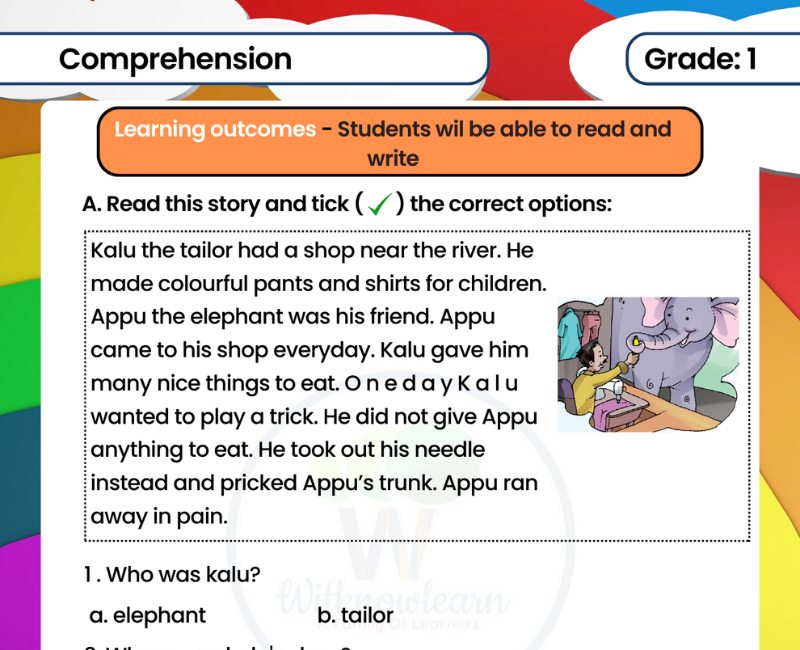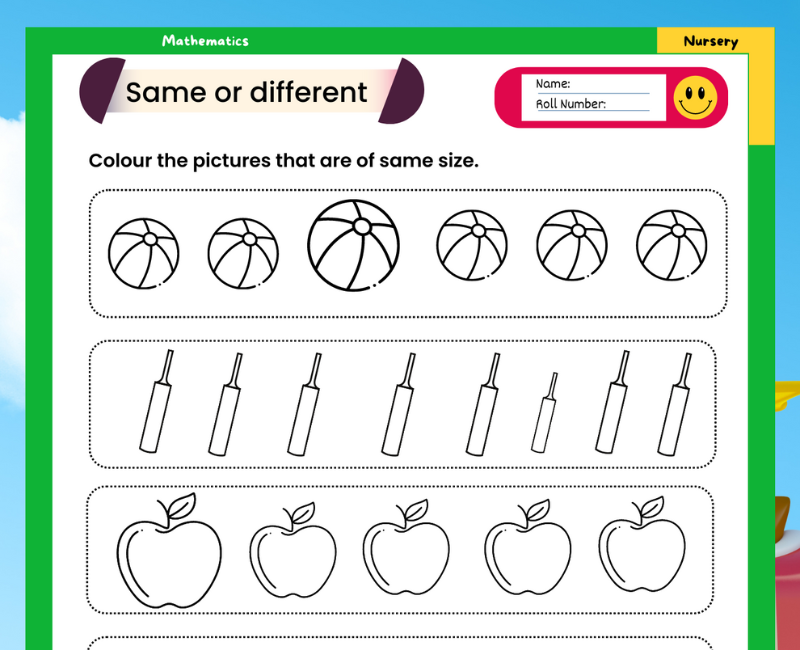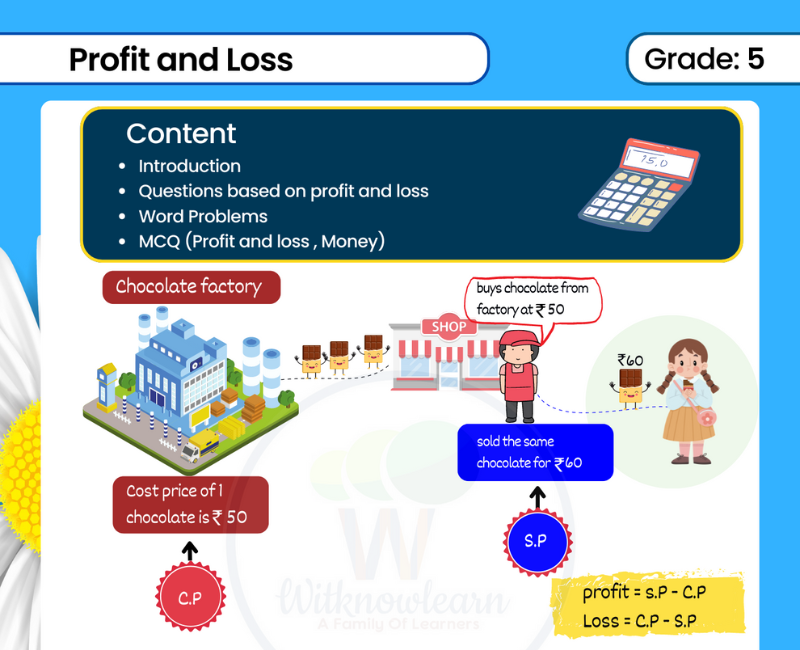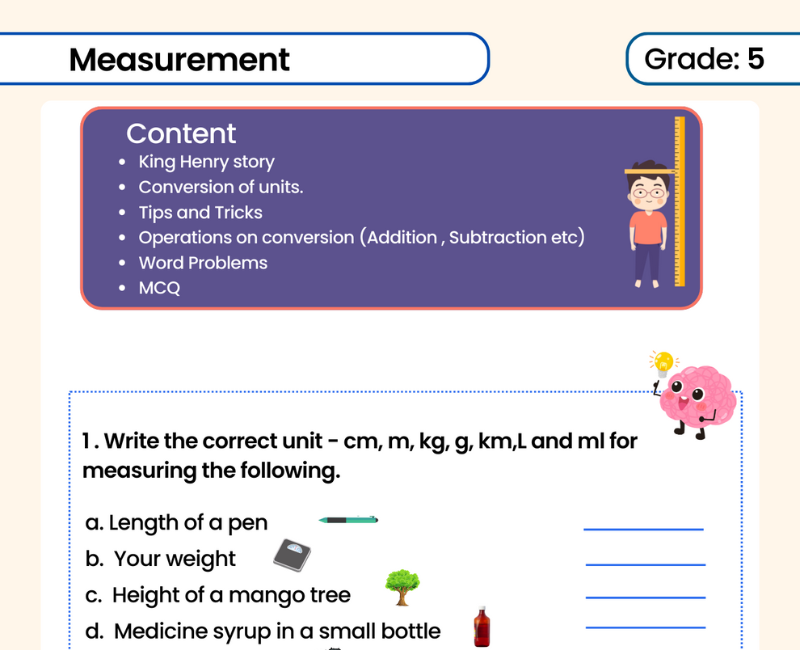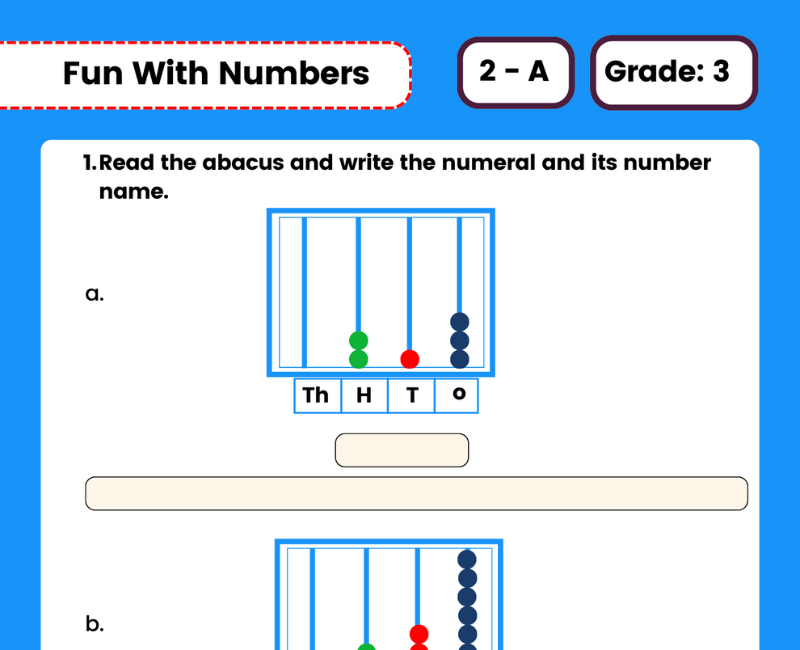Top Comprehension Passage worksheet for class 1 Kids
Does your child need help understanding what they’ve read? Comprehension worksheets for class 1 kids can be a great way to get them thinking critically and boosting their reading abilities. With our engaging worksheet collection, you can provide your child with a fun and effective way to grow their comprehension skills.
Use Scenarios to Engage Children's Imagination
As parents and teachers, we all want our young learners to develop strong reading comprehension skills. One effective way to achieve this is through the use of comprehension passage worksheets. These worksheets provide children with an opportunity to read a short passage and then answer a series of questions related to the passage.
For Class 1 students, comprehension passage worksheets can be an excellent tool to help them build their foundational reading skills. These worksheets typically include short, simple passages that are appropriate for young readers. The questions that follow are designed to assess their understanding of the text and promote critical thinking skills.
When selecting comprehension worksheets for Class 1 students, it is important to choose ones that are age-appropriate and engaging. Worksheets that are too difficult or boring may cause children to become frustrated or disinterested in reading. Instead, look for worksheets that feature colorful illustrations, relatable topics, and simple vocabulary.
One popular type of comprehension worksheet for Class 1 students is the "comprehension passage for Class 1" worksheet. These worksheets typically feature a short passage followed by a series of multiple-choice questions that assess students' comprehension of the text. Some of the questions may ask students to identify the main idea of the passage, while others may ask them to draw inferences or make predictions based on the information presented.
Another type of comprehension worksheet for Class 1 students is the "unseen passage for Class 1 with answers" worksheet. These worksheets feature a short passage that students have not seen before, followed by a series of questions related to the text. These worksheets are particularly useful for developing students' reading comprehension skills because they require them to read and analyze new information.
Regardless of the type of comprehension worksheet you choose for your Class 1 students, it is important to remember that these worksheets are just one tool in the learning process. It is important to also engage students in other activities that promote reading comprehension, such as class discussions, read-alouds, and independent reading time.
In addition to using comprehension worksheets in the classroom, parents can also use these worksheets at home to help their children build their reading skills. By incorporating comprehension worksheets into their daily routine, parents can help their children develop a love of reading and improve their academic performance.
Overall, comprehension worksheets are an effective tool for helping Class 1 students develop their reading comprehension skills. By choosing age-appropriate and engaging worksheets, parents and teachers can help their young learners become confident and competent readers.
